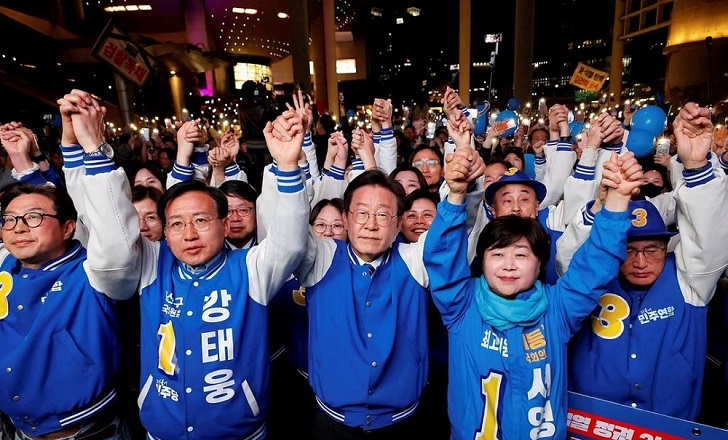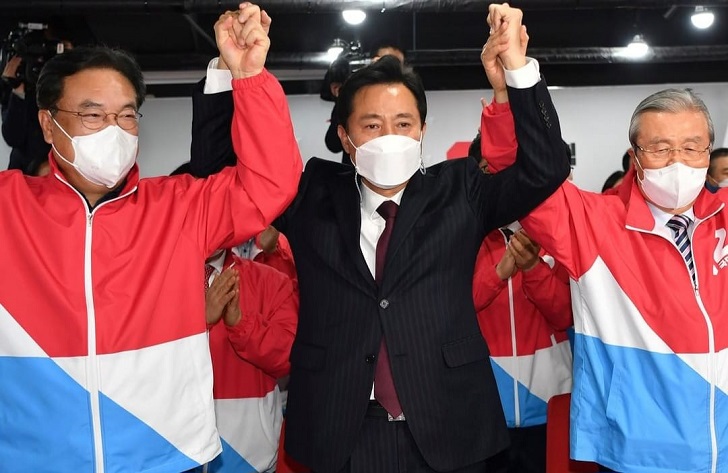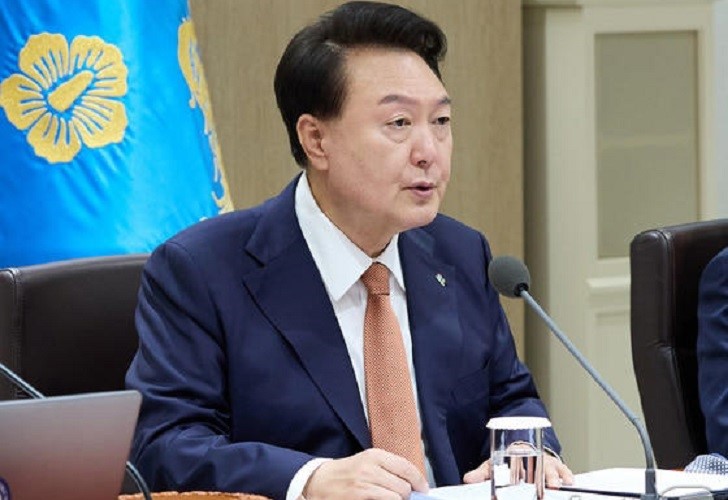On April 10, 2024, South Korea conducted its 22nd general election, a pivotal event that not only tested the waters of public opinion but also reshaped the National Assembly’s dynamic. The main opposition, the Democratic Party (DP), clinched a decisive victory by securing 175 of the 300 seats, leaving the ruling People Power Party (PPP) with 108 seats. The South Korea election saw an impressive 67 percent voter turnout—the highest in over three decades—and served as a barometer for President Yoon Suk Yeol’s administration halfway through his term.

How the South Korea Election Played Out
Despite the close races predicted by pre-election polls, the results highlighted a clear preference for the DP, reflecting the public’s desire for a robust check against the current government. The DP’s strategy proved effective, gaining a substantial lead by winning 161 district seats and complementing this with 14 additional seats through its affiliate, the Democratic Coalition.
On the other hand, the PPP managed 90 district victories and secured 18 seats through proportional representation. Another notable contender, the Rebuilding Korea Party (RKP), led by former justice minister Cho Kuk, garnered all its 12 seats through proportional representation, choosing not to contest in district elections.
South Korean election themes were varied, with economic issues like the rising cost of living taking center stage alongside governance criticisms. Particularly, the administration’s proposal to increase medical school quotas—a response to a strike by doctors—did not sit well with many voters. This issue, coupled with the opposition’s critique of the government’s handling of welfare policies, notably influenced public sentiment.

Domestic Implications of the Election Results
The DP’s victory is likely to intensify President Yoon’s legislative gridlock. With the opposition now controlling about 60 percent of the seats, the legislative process could see further delays and challenges.
Historically, President Yoon has struggled with pushing his agenda through the National Assembly, with a notably low bill passage rate of just 29.2 percent since his tenure began. Despite this, he has been active in promoting policies to boost housing supply and significant infrastructure projects, which temporarily enhanced his popularity.
However, these policies, often labeled as populist by critics, may now face tougher scrutiny and potential roadblocks in the newly configured assembly. Furthermore, the opposition, including the newly empowered RKP, may initiate probes into various administrative issues, potentially increasing the political pressure on Yoon’s governance.
The Election and South Korea’s Foreign Policy

While domestic policies may see a significant impact from the election, changes to South Korea’s foreign policy are less likely. President Yoon, despite opposition, has maintained a strong stance on reinforcing the U.S.-South Korea alliance and addressing North Korea’s provocations.
This consistent approach, coupled with efforts to mend ties with Japan, suggests that Yoon’s foreign policy directions remain steadfast. However, opposition leaders like DP’s Lee Jae-myung have signaled a different tone, advocating for neutrality on global issues such as the Taiwan Strait and Ukraine, pointing towards potential debates and divergences in foreign policy strategy within the assembly.
The recent election has certainly set the stage for a complex political landscape in South Korea. As the new National Assembly takes shape, the interplay between the ruling and opposition parties will be crucial in shaping both domestic and international policies. The balance of power has shifted, and with it, the dynamics of South Korean politics are poised for significant developments.




